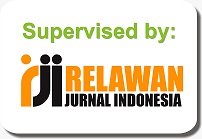The Implementation of ARCS Learning Model to Improve Students Learning Activities and Outcomes in Vocational High School
DOI:
https://doi.org/10.32939/tarbawi.v17i2.1008Keywords:
ARCS Learning Model, Learning Activities, Learning Outcomes, Vocational High SchoolAbstract
Current learning is needed to emphasize student activities to be more constructive. However, learning emphasizes more on the target material and focuses on the final result. This study aims to improve student learning activities and outcomes in Automotive Engineering Basic Work subjects by implementing the ARCS learning model. This type of research is classroom action research, each cycle consisting of stages of planning, action, observation, and reflection. The research subjects were 40 students of tenth grade State Vocational High School in Purworejo, Indonesia. Data were collected through observation to determine the description of student activities during the learning process. Then the evaluation test was used to determine the final results of student learning after being given the ARCS learning model in the classroom. The study results indicate that the implementation of ARCS learning in the process provides progress on student learning activities and outcomes during the learning process. The results showed that the implementation of the ARCS model increased student learning activities by 74% and increased learning outcomes by 82%. Thus, it can be concluded that the ARCS learning model, in general, can have a potential effect because students are more constructive in learning so that it can be used as a learning reference in vocational high school.
Downloads
References
Afjar, A. M., Musri, & Syukri, M. (2020). Attention, relevance, confidence, satisfaction (ARCS) model on students’ motivation and learning outcomes in learning physics. Journal of Physics: Conference Series, 1460(1). https://doi.org/10.1088/1742-6596/1460/1/012119
Alfiyana, R., Sukaesih, S., & Setiati, N. (2018). Pengaruh Model ARCS (Attention, Relevance, Confidence, Satisfaction) dengan Metode Talking Stick Terhadap Motivasi dan Hasil Belajar Siswa Materi Sistem Pencernaan Makanan. Journal of Biology Education, 7(2), 226–236. https://doi.org/10.15294/JBE.V7I2.24287
Chen, Y. C. (2016). Effect of using the attention, relevance, confidence, and satisfaction model of learning motivation on the function of reverse mentoring. International Journal of Human Resources Development and Management, 16(3/4), 161–175.
Fletcher, M., & Beringer, A. (2009). Introduction to action research. Paediatric Nursing, 21(2), 30. https://doi.org/10.7748/paed2009.03.21.2.30.c6916
Goundar, S. (2019). (PDF) Chapter 3 - Research Methodology and Research Method. https://www.researchgate.net/publication/333015026_Chapter_3_-_Research_Methodology_and_Research_Method
Indonesia’s Investment Program for Human Resource Improvement. (n.d.). Retrieved October 26, 2021, from https://www.kemenkeu.go.id/publikasi/berita/indonesia-s-investment-program-for-human-resource-improvement/
Keller, J. M. (1987). Development and use of the ARCS model of instructional design. Journal of Instructional Development, 10(3), 2–10. https://doi.org/10.1007/BF02905780
Jamil, M. (2019). Optimalisasi Model ARCS Dalam Pembelajaran Saintifik Untuk Meningkatkan Motivasi Belajar Peserta Didik Pada Peminatan Mata Pelajaran Geografi Di Kelas Matematika Ilmu Alam. Indonesian Journal of Integrated Science Education, 1(1), 2019. http://dx.doi.org/10.29300/ijisedu.v1i1.1401
Pratama, R. W., Sudiyanto, S., & Riyadi, R. (2019). The Development Of Attention, Relevance, Confidence, And Satisfaction (ARCS) Model Based on Active Learning to Improve Students’learning Motivation. Al-Jabar : Jurnal Pendidikan Matematika, 10(1), 59–66. https://doi.org/10.24042/AJPM.V10I1.4044
Purwoko, R. Y., Nugraheni, P., & Instanti, D. (2019). Implementation Of Pedagogical Content Knowledge Model In Mathematics Learning For High School. Journal of Physics: Conference Series, 1254(1), 012079. https://doi.org/10.1088/1742-6596/1254/1/012079
Purwoko, R. Y. (2017). Urgensi Pedagogical Content Knowledge dalam Meningkatkan Kualitas Pembelajaran Matematika. Jurnal Pendidikan Surya Edukasi (JPSE), 3(2), 42–55.
Setiawan, B. A., Rofi, S., & Jatmikowati, T. E. (2021). The Student Learning Activity Levels on the Online Learning During the Covid-19 Pandemic. Jurnal Pendidikan Islam Indonesia, 5(2), 186–197. https://doi.org/10.35316/JPII.V5I2.289
Sisdiknas. (2003). Sistem pendidikan nasional. Jakarta: Direktorat Pendidikan Menengah Umum.
Sofyan, H., Suyanto, W., Budiman, A., Siswanto, I., Gumelar, A., & Ruswanto, W. A. (2019). Pelatihan Penelitian Tindakan Kelas Dengan Variasi Metode dan Media Pembelajaran Untuk Meningkatkan Kemampuan Penulisan Karya Ilmiah Guru-Guru SMK Negeri 3 Yogyakarta. Jurnal Pendidikan Vokasi Otomotif, 2(1), 11–22.
Suyitno, S., Purwoko, R. Y., Widiyono, Y., Jatmoko, D., Nurtanto, M., & Hassan, Z. (2020). Development of learning media for automotive charging system based on Macromedia flash vocational school. Universal Journal of Educational Research, 8(11 C), 64–71. https://doi.org/10.13189/ujer.2020.082308
Downloads
Published
Issue
Section
License
Copyright (c) 2021 Dwi Jatmoko, Arif Susanto, Riawan Yudi Purwoko, Zainal Arifin, Purnawan Purnawan

This work is licensed under a Creative Commons Attribution-ShareAlike 4.0 International License.









